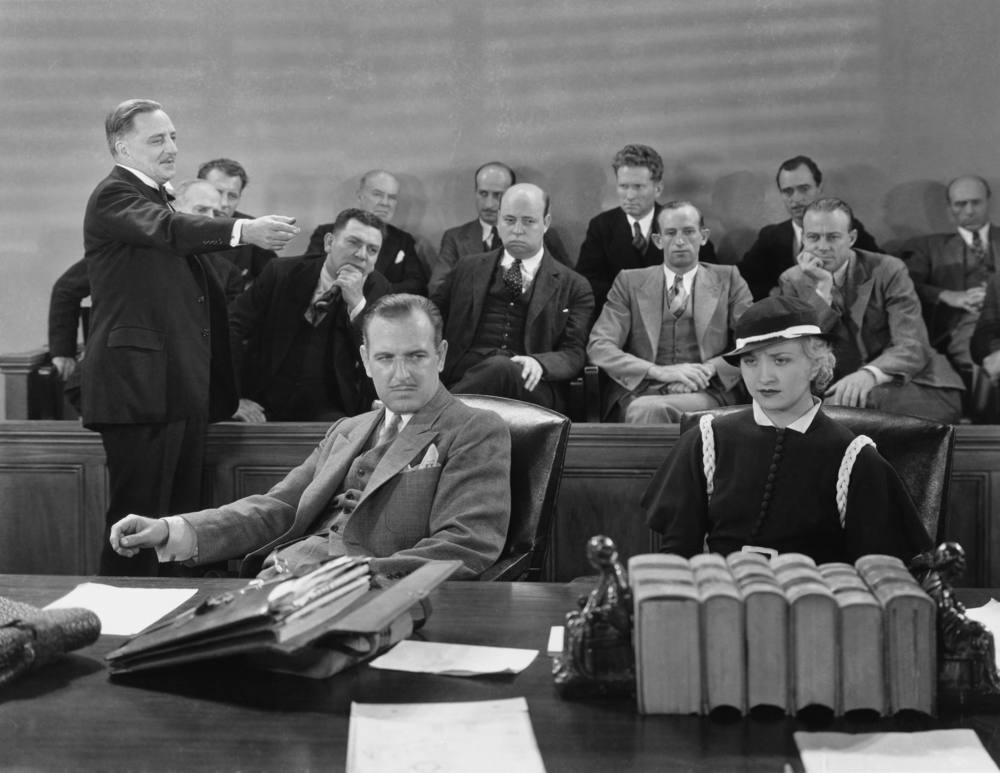California Financial Elder Abuse HOA Litigation Attorney Sebastian Gibson

California Financial Elder Abuse HOA Litigation Attorney Sebastian Gibson
A California Homeowners Associations Attorney Who Can Fight HOAs And Win
Specializing both in both financial elder abuse litigation and homeowner association law in California, California Financial Elder Abuse HOA Litigation Attorney Sebastian Gibson has been named a top lawyer for the past 10 years in a row by the prestigious Palm Springs Life Magazine and rated “Superb” (their highest rating) by Avvo which rates attorneys all across the nation. When an HOA tries to take away the property rights of an elderly person in California, the right choice is California Financial Elder Abuse HOA Litigation Attorney Sebastian Gibson.
With law degrees both in California and Great Britain and over 40 years of experience both in California and in London, California Financial Elder Abuse HOA Litigation Attorney Sebastian Gibson has been called “Brilliant” and “A Legend.”
Today with offices both in Palm Desert and in Newport Beach, California Financial Elder Abuse Attorney Sebastian Gibson specializes in going after homeowner associations which seek to take away property rights of the elderly.
If as an elderly person of 65 or older, you’ve been unfairly discriminated against for leasing out your property and are constantly receiving violations and being fined for reasons not permitted by your HOA’s bylaws, CC&Rs, Rules and Regulations or by California law, call California Financial Elder Abuse HOA Litigation Attorney Sebastian Gibson.

The Type of Situation Which Warrants A Financial Elder Abuse Lawsuit Against An HOA in California And One We’re Handling
This is an actual fact situation. A 100 year-old homeowner now living in an Alzheimer Assisted Living Facility leases the condo she lived in until her 90s in Orange County. She is the last living original purchaser of a condo in the adult community which requires homeowners be age 55 or older.
She leases her condo through a real estate brokerage for terms of 31 days or longer and most often for two months at a time or more. The city allows leases of homes by homeowners for any length of time, but if a home is leased for 30 days or less, there is a tax on the rental amount.
The CC&Rs of the adult community which were in effect when the elderly homeowner purchased her condo and which have not been changed contains this statement:
“The right of an Owner to rent or lease all of his Unit by means of a written lease or rental agreement (for other than temporary purposes) subject to the Restrictions shall not be impaired.” [The term “temporary purposes” is not defined in the CC&Rs.]
The Property Management Company which acts at the behest of the Condo Homeowners Association Board has sent the 100 year-old homeowner a violation letter which states she is in violation of the Association’s CC&Rs because the description of her home on the Multiple Listing Service by her real estate agent indicates she is renting her home as a “vacation home.”
It should be mentioned at this point that the condo the 100 year-old woman leases out is fully furnished. As a consequence, it has proved generally impossible to lease the condo other than to people wishing to visit the area for periods of more than a month or two.
Pursuant to the Rules and Regulation of the Homeowner Association in which the 100 year-old owns her condo, she will likely soon be fined, repeatedly, if she continues to rent her condo as, what the Homeowner Association Board feels, is a “vacation rental.”
When the homeowner is fined, she will pay the fine and then proceed to Small Claims Court and seek reimbursement of the fine. This will be done repeatedly.
Eventually, however, it is expected that rather than giving up, the Homeowner Association Board will take other actions in an effort to force the homeowner to stop leasing her condo or to sell her condo and move.
It should also be added that ever since the 100 year-old homeowner began leasing out her condo some 5 plus years ago, a member of the Homeowner Association Board has had a tantrum regarding the homeowner leasing out her condo and has railed against the homeowner’s representative for leasing her condo, the Board has repeatedly sent her violation letters and stirred up hate against the homeowner such that a For Lease sign on her gate was once even torn down.
The condo is located in a development in one of the most expensive cities to own property in California.

California Homeowner Association Law Regarding Changes to CC&Rs To Prohibit Leasing – Grandfathering in California
In California, homeowner associations are hamstrung to utilize changes to their CC&Rs to restrict or prohibit renting or leasing one’s residence against homeowners who are in effect already grandfathered in by the CC&Rs that were in effect when they purchased their residence.
California Civil Code Section 4740(a) provides that an owner shall not be subject to any provision in a governing document that prohibits the rental or leasing of their home to a renter, lessee or tenant unless the governing document or amendment was effective prior to the date the owner acquired the property.
Civil Code §4740. Limitation on Rental Prohibitions.
(a) An owner of a separate interest in a common interest development shall not be subject to a provision in a governing document or an amendment to a governing document that prohibits the rental or leasing of any of the separate interests in that
common interest development to a renter, lessee, or tenant unless that governing document, or amendment thereto, was effective prior to the date the owner acquired title to his or her separate interest.
Further, California Code Section 4740(b) provides that unless an owner “expressly consents” to an amendment that prohibits the rental or leasing of their home, the amendment does not apply to such an owner.
(b) Notwithstanding the provisions of this section, an owner of a separate interest in a common interest development may expressly consent to be subject to a governing document or an amendment to a governing document that prohibits the rental or leasing of any of the separate interests in the common interest development to a renter, lessee, or tenant.
The effect of California Civil Code Section 4740 with respect to this 100 year-old homeowners rights to rent or lease her condo is thus a right which cannot be impaired by subsequently changing the CC&Rs to now in some way prohibit her leasing the condo, except for the undefined restriction contained in the original CC&Rs against renting or leasing the condo for “temporary purposes.”
As any lease or rental of a property could be considered for a “temporary purpose” if the transfer of property rights is other than in a sale, however, such a prohibition would be contrary to the CC&Rs which clearly state that the right of an Owner to rent or lease their unit “shall not be impaired.”
As the city in which the condo development is situated considers leases for 30 days or less to be a “short term” lease, which while still legal, may be taxed, this would still be a tortured explanation of what might be considered a “temporary purpose.” However, it is arguably more logical that a lease for a “temporary purpose” would be for some one-day event such as a bachelor or bachelorette party, or for a film shoot at one’s residence, rather than a lease of what was clearly not defined in terms of any specific duration other than being “temporary” and certainly not in reference to the purpose of the lease such as a “vacation” or to use a similarly ridiculous term, a “safari.”
In the event the Homeowner Association Board seeks to prohibit the homeowner from leasing out her condo, the 100 year-old homeowner will lose her only real source of income to pay for her assisted living facility charges. When fully leased out for a year, the condo can produce as much as $75,000 per year, however, that not only goes toward the homeowner’s assisted living facility charges, but also for property taxes, homeowner association fees, utilities and other expenses which the homeowner pays for while the condo is leased.
Without the income from leasing out her condo, the 100 year-old homeowner would be forced to sell her condo to pay for her assisted living facility charges and any large medical expenses she may yet incur.
Were the homeowner to lose her right to lease the condo for these shorter periods of time of a month or two to people visiting the area, she (and her heir, an elderly son) would stand to lose this income which over even a ten year period, would amount to a $750,000 loss. The Homeowner Association is well funded with a balance approaching 2 million dollars.
California Civil Code Section 4740 also applies to the 100 year-old homeowner’s heir as indicated by Section 4740 (c).
( c ) For purposes of this section, the right to rent or lease the separate interest of an owner shall not be deemed to have terminated if the transfer by the owner of all or part of the separate interest meets at least one of the following conditions:
(1) Pursuant to Section 62 or 480.3 of the Revenue and Taxation Code, the transfer is exempt, for purposes of reassessment by the county tax assessor.
(2) Pursuant to subdivision (b) of, solely with respect to probate transfers, or subdivision (e), (f), or (g) of, Section 1102.2, the transfer is exempt from the requirements to prepare and deliver a Real Estate Transfer Disclosure Statement, as set forth in Section 1102.6.

Those Dictatorial California Homeowner Association Boards
Why would a homeowner association take such actions against a 100 year-old homeowner in poor health and try to force her to sell her property to pay for her assisted living facility charges?
This is also part of the fact situation. The development in which the homeowner has her condo is very white if not all white. People who visit the area, however, may be Black or Hispanic or Indian or from The Far East, The Middle East or from Africa. They might be Muslim or Hindu, they might be gay or lesbian, they might be from blue states, be bikers or pot smokers, any one of which might be offensive to this mostly white development.
Any fear that the 100 year-old’s lease of her condo could result in a decrease in property values, is clearly misplaced. The property values in the development in the last five years while the homeowner’s condo has been leased out have been dramatically rising, and lease amounts are nearly double what they were five years ago.
No one can say what is motivating this Homeowner Association Board to try to harm this 100 year-old homeowner, but clearly the thought of her home being rented out to people who don’t already live in the development frightens the other owners.
Not All Fact Situations Warrant Financial Elder Abuse Litigation in California
Each homeowner association financial elder abuse situation must be evaluated based on their individual facts and the wording of the homeowner association CC&Rs. While some CC&Rs in force when a homeowner purchased their property may contain no rental or lease restrictions whatsoever, other CC&Rs may have well-defined situations or periods of time for which a residence may not be rented or leased.
Likewise, the actions of a particular Homeowner Association Board must be evaluated as well as the homeowner’s health and age. The more nasty the actions of the Homeowner Association Board, the older and the worse the health of the homeowner, provides a litigant with a greater chance of obtaining not only their economic damages, but also double damages, punitive damages and attorney’s fees under California financial elder abuse law.

Financial Elder Abuse Law in California
Welfare & Institutions Code § 15610.30.
(a) “Financial abuse” of an elder or dependent adult occurs when a person or entity does any of the following:
(1) Takes, secretes, appropriates, obtains, or retains real or personal property of an elder or dependent adult for a wrongful use or with intent to defraud, or both.
(2) Assists in taking, secreting, appropriating, obtaining, or retaining real or personal property of an elder or dependent adult for a wrongful use or with intent to defraud, or both.
(3) Takes, secretes, appropriates, obtains, or retains, or assists in taking, secreting, appropriating, obtaining, or retaining, real or personal property of an elder or dependent adult by undue influence, as defined in section 15610.70.
(b) A person or entity shall be deemed to have taken, secreted, appropriated, obtained, or retained property for a wrongful use if, among other things, the person or entity takes, secretes, appropriates, obtains, or retains the property and the person or entity knew or should have known that this conduct is likely to be harmful to the elder or dependent adult.
( c ) For purposes of this section, a person or entity takes, secretes, appropriates, obtains, or retains real or personal property when an elder or dependent adult is deprived of any property right, including by means of an agreement, donative transfer, or testamentary bequest, regardless of whether the property is held directly or by a representative of an elder or dependent adult.
(d) For purposes of this section, “representative” means a person or entity that is either of the following:
(1) A conservator, trustee, or other representative of the estate of an elder or dependent adult.
(2) An attorney-in-fact of an elder or dependent adult who acts within the authority of the power of attorney.
Welfare & Institutions Code § 15610.70.
(a) Undue influence means excessive persuasion that causes another person to act or refrain from acting by overcoming that person’s free will and results in inequity. In determining whether a result was produced by undue influence, all of the following shall be considered:
(1) The vulnerability of the victim. Evidence of vulnerability may include, but is not limited to, incapacity, illness, disability, injury, age, education, impaired cognitive function, emotional distress, isolation, or dependency, and whether the influencer knew or should have known of the alleged victim’s vulnerability.
(2) The influencer’s apparent authority. Evidence of apparent authority may include, but is not limited to, status as a fiduciary, family member, care provider, health care professional, legal professional, spiritual adviser, expert, or other qualification.
(3) The actions or tactics used by the influencer. Evidence of actions or tactics used may include, but is not limited to, all of the following:
(A) Controlling necessaries of life, medication, the victim’s interactions with others, access to information, or sleep.
(B) Use of affection, intimidation, or coercion.
( C ) Initiation of changes in personal or property rights, use of haste or secrecy in effecting those changes, effecting changes at inappropriate times and places, and claims of expertise in effecting changes.
(4) The equity of the result. Evidence of the equity of the result may include, but is not limited to, the economic consequences to the victim, any divergence from the victim’s prior intent or course of conduct or dealing, the relationship of the value conveyed to the value of any services or consideration received, or the appropriateness of the change in light of the length and nature of the relationship.
(b) Evidence of an inequitable result, without more, is not sufficient to prove undue influence.
The key to the fact situation outlined where a homeowner association board prevents a homeowner from renting or leasing their property to pay for their assisted living facility charges is California Welfare & Institutions Code § 15610.30 ( c ).
California Welfare & Institutions Code § 15610.30 ( c ) provides “a person or entity takes, secretes, appropriates, obtains, or retains real or personal property when an elder or dependent adult is deprived of any property right…”
The right of a homeowner to rent or lease their property is clearly a property right under California Welfare & Institutions Code § 15610.30 ( c ) and that is what is occurring in our fact situation.
However, these sections are also important:
California Welfare & Institutions Code § 15610.70(a) defines undue influence as “excessive persuasion that causes another person to act or refrain from acting by overcoming that person’s free will and results in inequity.”
Homeowner Association violation notices that are sent to a 100 year-old with Alzheimer’s Disease who relies on rent from her former residence to pay for her costly assisted living facility charges are frightening. They are often accompanied with the notice of a fine, a fine that an elder person living on a fixed income can find daunting. They’re scary for any adult, much less a person like the one in our fact situation.
In the fact situation at hand, the property management company acting on behalf of the Homeowners Association Board has sent the violation notice to the 100 year-old homeowner more than half a dozen times and is frightening the homeowner to death.
If the homeowner fights the HOA and loses, a Homeowner Association Board can hold the homeowner responsible for the HOA’s lawyers fees and costs. Cave under to the HOA’s scare tactics, and the homeowner will be forced to lose their only source of income to pay for their assisted living charges and medical expenses, or sell the home they hoped to pass on to their heirs.
In determining whether a result was produced by undue influence, the following are considered, which are also important in this fact situation.
California Welfare & Institutions Code § 15610.70 (a)(1) states, “The vulnerability of the victim. Evidence of vulnerability may include, but is not limited to, incapacity, illness, disability, injury, age, education, impaired cognitive function, emotional distress, isolation, or dependency, and whether the influencer knew or should have known of the alleged victim’s vulnerability.”
Obviously the 100 year-old victim in our fact situation with Alzheimer’s Disease fits within the parameters of someone vulnerable.
California Welfare & Institutions Code § 15610.70 (a)(2) provides, :The influencer’s apparent authority. Evidence of apparent authority may include, but is not limited to, status as a fiduciary, family member, care provider, health care professional, legal professional, spiritual adviser, expert, or other qualification.”
Not one has more authority to take away the property rights of the homeowner in our fact situation than the Homeowner Association Board.
The tactics of an influencer are also considered as indicated in California Welfare & Institutions Code § 15610.70 (a)(2)( C ) which include in part, “Initiation of changes in personal or property rights…”
Clearly, the Homeowner Association Board’s determination that the leasing of her condo to people who may be on vacation is suddenly prohibited pursuant to a vague and undefined term contained in the CC&Rs is a change in the homeowner’s property rights.
California Civil Code Section 1575 is also important as it supplements but does not interfere with California Welfare & Institutions Code § 15610.70 by supplementing the common law meaning of undue influence.
The fact that California Civil Code Section 1575 does not interfere with California Welfare & Institutions Code § 15610.70 is laid out in California Probate Code Section 86 which states “Undue influence” has the same meaning as defined in Section 15610.70 of the Welfare and Institutions Code. It is the intent of the Legislature that this section supplement the common law meaning of undue influence without superseding or interfering with the operation of that law.
California Civil Code Section 1575.
Undue influence consists:
1. In the use, by one in whom a confidence is reposed by another, or who holds a real or apparent authority over him, of such confidence or authority for the purpose of obtaining an unfair advantage over him;
2. In taking an unfair advantage of another’s weakness of mind; or,
3. In taking a grossly oppressive and unfair advantage of another’ s necessities or distress.
Under this definition, the actions of the Homeowner Association board, clearly that of one with real authority over the homeowner, is taking an unfair advantage of the homeowner’s weakness of mind and is taking a grossly oppressive and unfair advantage of the homeowner’s necessities and distress.
In such cases, if the homeowner’s attorney is unable to prevent the actions of a Homeowner Association Board, or if the attorney or representative of the homeowner is directed to accede to the Homeowner Association Board’s sudden prohibition on leasing the homeowner’s residence to anyone who might be considered to be on “vacation,” the homeowner will lose the only real source of income they may have counted on to pay for their assisted living facility charges and to provide a valuable source of income for her heir or heirs.

Damages Under California Financial Elder Abuse Law
An elder can obtain double damages pursuant to California Probate Code Section 859.
California Probate Code Section 859.
If a court finds that a person has in bad faith wrongfully taken, concealed, or disposed of property belonging to a conservatee, a minor, an elder, a dependent adult, a trust, or the estate of a decedent, or has taken, concealed, or disposed of the property by the use of undue influence in bad faith or through the commission of elder or dependent adult financial abuse, as defined in Section 15610.30 of the Welfare and Institutions Code, the person shall be liable for twice the value of the property recovered by an action under this part. In addition, except as otherwise required by law, including Section 15657.5 of the Welfare and Institutions Code, the person may, in the court’s discretion, be liable for reasonable attorney’s fees and costs. The remedies provided in this section shall be in addition to any other remedies available in law to a person authorized to bring an action pursuant to this part.
An elder can obtain treble damages pursuant to California Civil Code Section 3345.
California Civil Code Section 3345.
(a) This section shall apply only in actions brought by, on behalf of, or for the benefit of senior citizens or disabled persons, as those terms are defined in subdivisions (f) and (g) of Section 1761, to redress unfair or deceptive acts or practices or unfair methods of competition.
(b) Whenever a trier of fact is authorized by a statute to impose either a fine, or a civil penalty or other penalty, or any other remedy the purpose or effect of which is to punish or deter, and the amount of the fine, penalty, or other remedy is subject to the trier of fact’s discretion, the trier of fact shall consider all of the following factors, in addition to other appropriate factors, in determining the amount of fine, civil penalty or other penalty, or other remedy to impose. Whenever the trier of fact makes an affirmative finding in regard to one or more of the following factors, it may impose a fine, civil penalty or other penalty, or other remedy in an amount up to three times greater than authorized by the statute, or, where the statute does not authorize a specific amount, up to three times greater than the amount the trier of fact would impose in the absence of that affirmative finding:
(1) Whether the defendant knew or should have known that his or her conduct was directed to one or more senior citizens or disabled persons.
(2) Whether the defendant’s conduct caused one or more senior citizens or disabled persons to suffer: loss or encumbrance of a primary residence, principal employment, or source of income; substantial loss of property set aside for retirement, or for personal or family care and maintenance; or substantial loss of payments received under a pension or retirement plan or a government benefits program, or assets essential to the health or welfare of the senior citizen or disabled person.
(3) Whether one or more senior citizens or disabled persons are substantially more vulnerable than other members of the public to the defendant’s conduct because of age, poor health or infirmity, impaired understanding, restricted mobility, or disability, and actually suffered substantial physical, emotional, or economic damage resulting from the defendant’s conduct.
An elder can obtain attorney’s fees and costs and punitive damages pursuant to California Welfare & Institutions Code Section 15657.5.
California Welfare & Institutions Code Section 15657.5.
(a) Where it is proven by a preponderance of the evidence that a defendant is liable for financial abuse, as defined in Section 15610.30, in addition to compensatory damages and all other remedies otherwise provided by law, the court shall award to the plaintiff reasonable attorney’s fees and costs. The term “costs” includes, but is not limited to, reasonable fees for the services of a conservator, if any, devoted to the litigation of a claim brought under this article.
(b) Where it is proven by a preponderance of the evidence that a defendant is liable for financial abuse, as defined in Section 15610.30, and where it is proven by clear and convincing evidence that the defendant has been guilty of recklessness, oppression, fraud, or malice in the commission of the abuse, in addition to reasonable attorney’s fees and costs set forth in subdivision (a), compensatory damages, and all other remedies otherwise provided by law, the limitations imposed by Section 377.34 of the Code of Civil Procedure on the damages recoverable shall not apply.
( c ) The standards set forth in subdivision (b) of Section 3294 of the Civil Code regarding the imposition of punitive damages on an employer based upon the acts of an employee shall be satisfied before any punitive damages may be imposed against an employer found liable for financial abuse as defined in Section 15610.30. This subdivision shall not apply to the recovery of compensatory damages or attorney’s fees and costs.
(d) Nothing in this section affects the award of punitive damages under Section 3294 of the Civil Code.
(e) Any money judgment in an action under this section shall include a statement that the damages are awarded based on a claim for financial abuse of an elder or dependent adult, as defined in Section 15610.30. If only part of the judgment is based on that claim, the judgment shall specify what amount was awarded on that basis.

California Financial Elder Abuse Attorney HOA Litigation Attorney Sebastian Gibson. We’re On Your Side.
There comes a time when a homeowner has no choice but to fight their homeowner association that becomes dictatorial or seeks to force a homeowner to move from the home they made for their family and to provide for their old age.
California financial elder abuse HOA litigation attorney Sebastian Gibson, is the attorney to turn to when a homeowner reaches that point when a legal confrontation with their HOA board is the only answer.
Take Legal Action Against A Homeowners Association Board Committing Financial Elder Abuse
With offices in Palm Desert and Newport Beach in Orange County, and serving homeowners and elders throughout California, California financial elder abuse HOA litigation attorney Sebastian Gibson is the attorney to turn to when an HOA is taking away the property rights of an elderly homeowner.
Homeowner associations can be sued and in some cases, even punitive damages can be awarded and attorney fees and costs recovered as well. When a dictatorial Homeowners Association Board takes away a property right of an elder, especially that of an elder in poor health or with Alzheimer’s Disease or dementia, the family or representative of that elder simply cannot allow the elder’s HOA to take away the elder’s property rights, rights that the elder hoped would pay for their assisted living facility or medical expenses or a property which the elder hoped to pass on to their heirs.
In fact situations such as the one outlined in this article, the fact that every penny of the reserves of a homeowner association can be sought when an HOA seeks to deprive the elderly of their property rights, is a strong weapon in the arsenal of a California financial elder abuse HOA litigation attorney which can be used to prevent a Homeowners Association Board from depriving an elder of one of their most important assets, a home that can be rented or leased out to provide the elder with income for the remaining years of their life.




